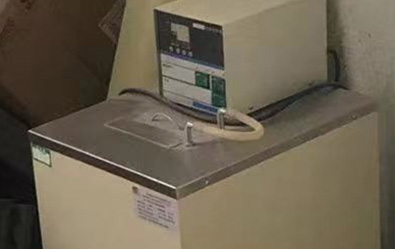loading...
- No. 9, Xingyuan South Street, Dongwaihuan Road, Zaoqiang County, Hengshui, Hebei, China
- admin@zjcomposites.com
- +86 15097380338
- Welcome to visit our website!
frp pressure vessel filter
Understanding FRP Pressure Vessel Filters A Comprehensive Overview
Fiber Reinforced Polymer (FRP) pressure vessel filters have become increasingly vital in various industries, particularly in applications involving water treatment, chemical processing, and environmental engineering. These innovative structures leverage the unique strengths of FRP materials, making them suitable for applications that require durability, corrosion resistance, and lightweight properties.
What are FRP Pressure Vessel Filters?
FRP pressure vessel filters are containers made from composite materials, primarily consisting of a polymer matrix reinforced with fibers, such as glass or carbon. The primary function of these vessels is to house filtration systems effectively. They are designed to withstand high pressure and environmental stress while providing a barrier against contaminants and ensuring the purity of the processed fluids.
Advantages of FRP Pressure Vessel Filters
1. Corrosion Resistance One of the standout features of FRP materials is their inherent resistance to corrosion. Unlike traditional metal vessels, which can rust and degrade over time when exposed to harsh chemicals or environmental conditions, FRP vessels maintain their integrity and extend their lifespan.
2. Lightweight FRP vessels are significantly lighter than their metal counterparts. This characteristic simplifies installation and transportation, making it easier to manage large systems or install them in challenging locations.
3. High Strength-to-Weight Ratio The combination of strength and lightness in FRP materials means that these vessels can withstand high pressures without the need for excessive material weight. This property is particularly important in industrial settings where safety and reliability are paramount.
4. Design Flexibility FRP can be molded into complex shapes, allowing for customized designs that meet specific operational needs. This flexibility can lead to increased efficiency in filtration processes and better space utilization in facility layouts.
5. Thermal Insulation FRP materials can provide better insulation compared to metals, leading to potential energy savings in temperature-controlled processes. This feature is particularly beneficial in applications where thermal stability is critical.
Applications in Various Industries
frp pressure vessel filter

FRP pressure vessel filters find applications in many sectors, including
- Water Treatment These filters are essential in municipal and industrial water treatment plants. They help remove impurities and ensure clean water supply, while also being able to handle aggressive chemicals used during the treatment process.
- Chemical Processing For industries that process aggressive chemicals, FRP vessels provide an ideal solution as they can withstand harsh conditions without compromising structural integrity.
- Oil and Gas In the oil and gas industry, FRP vessels are used in separation and filtration processes, especially in offshore applications where traditional materials may fail due to environmental factors.
- Food and Beverage Ensuring the safety and quality of food and drinks is critical. FRP filters used in this sector comply with health regulations, maintaining high hygiene standards while ensuring the taste and freshness of products.
Maintenance and Lifespan
One of the key considerations in using FRP pressure vessel filters is their maintenance. While they are designed to last, regular inspections are vital to identify any signs of damage or wear. Unlike traditional metals, which may corrode or weaken over time, FRP materials generally exhibit consistent performance but require attention to any delamination or impact damage.
The lifespan of an FRP pressure vessel can be extensive, often exceeding 20 years with proper care and usage. This longevity, combined with lower maintenance costs, makes them an economically viable option in the long run.
Conclusion
FRP pressure vessel filters represent a significant advancement in filtration technology, offering numerous advantages over traditional materials. Their corrosion resistance, lightweight nature, and customizability make them ideal for a variety of industrial applications. As industries continue to seek solutions for more durable and efficient processes, FRP pressure vessels are poised to play an increasingly important role in the future of filtration and processing technologies.
-
The Rise of FRP Profiles: Strong, Lightweight, and Built to LastNewsJul.14,2025
-
SMC Panel Tanks: A Modern Water Storage Solution for All EnvironmentsNewsJul.14,2025
-
GRP Grating: A Modern Solution for Safe and Durable Access SystemsNewsJul.14,2025
-
Galvanized Steel Water Tanks: Durable, Reliable, and Ready for UseNewsJul.14,2025
-
FRP Mini Mesh Grating: The Safer, Smarter Flooring SolutionNewsJul.14,2025
-
Exploring FRP Vessels: Durable Solutions for Modern Fluid HandlingNewsJul.14,2025
-
GRP Structures: The Future of Lightweight, High-Performance EngineeringNewsJun.20,2025
